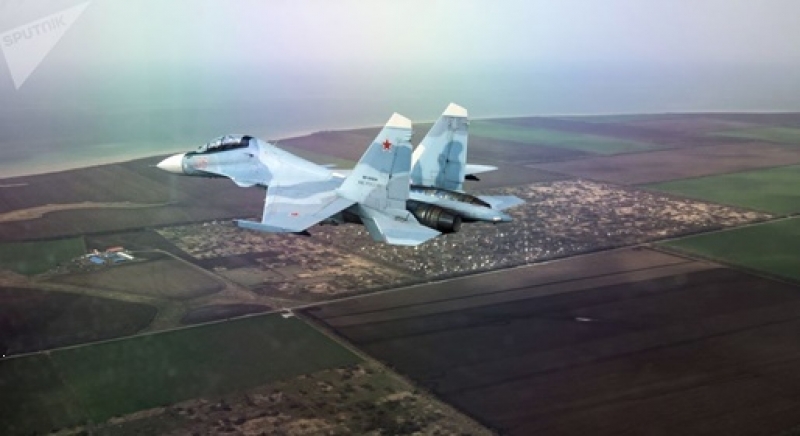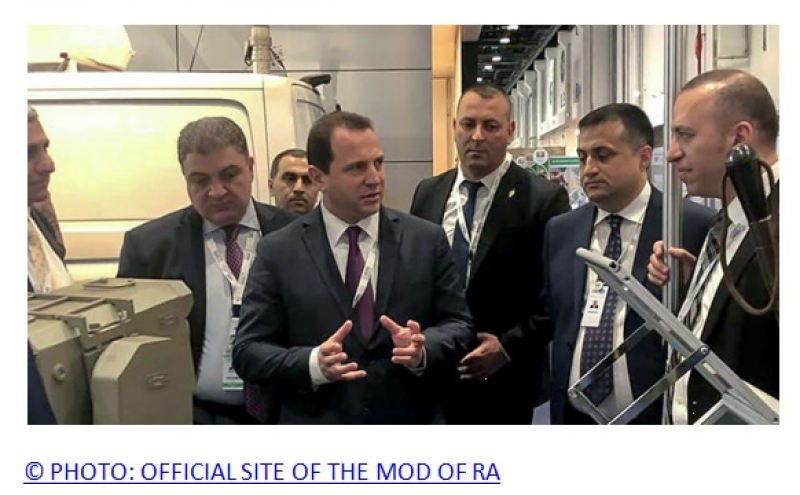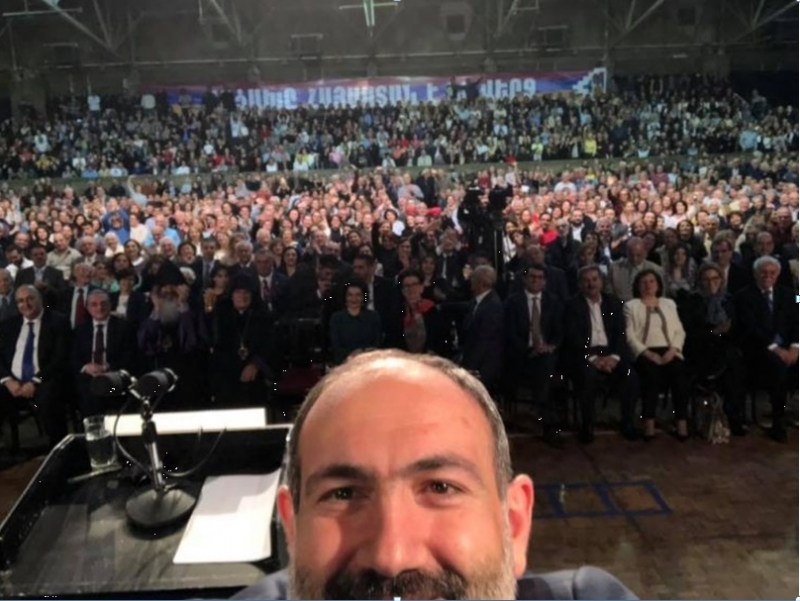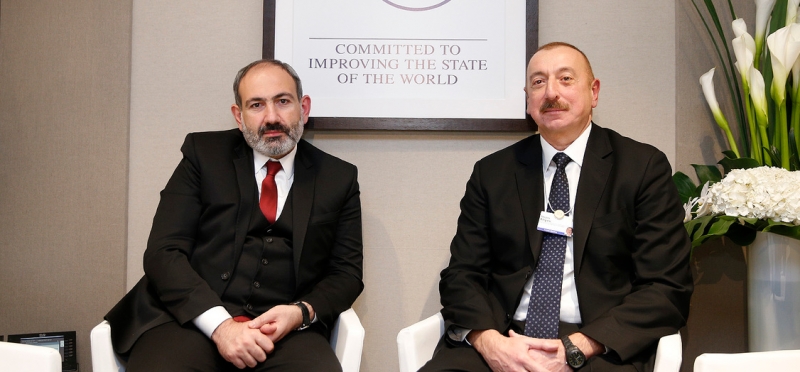
The OSCE Minsk Group co-chairs announced the consent of the leaders of Azerbaijan and Armenia to hold a new meeting. A day earlier, Armenian Prime Minister N. Pashinyan declared his desire to meet with I. Aliyev in Iran. We will turn to Pashinyan's Iranian speech later. Now let's ask ourselves: Pashinyan told the Armenian community of Iran that "the time has come to make dreams come true ... we together are one on the way to achieving our dreams, such as economic opportunities of Armenia, the realization of the just demands of the people of Artsakh, the realization of our dreams." Then, reporting on his intention to meet with I.Aliyev, added that there is no agenda for the future meeting.
In a statement dated March 1, the OSCE Minsk Group co-chairs Igor Popov, Stefan Visconti and Andrew Chaufer reported that they had met with Pashinyan and Aliyev on February 20-21. "The co-chairs positively assessed the continued absence of victims on the line of contact. They also welcomed the developing discussions in the region about preparing the population for peace," Turan reported.
Now the main point: are there really discussions in the region about preparing people for peace?
The only one who spoke about preparations for peace in Azerbaijan is the director of the NGO Society for Humanitarian Research (Baku) Avaz Hasanov, whose initiative was not welcomed by his antagonist, the Karabakh Liberation Committee, together with their many supporters. The attacks on Hasanov in social networks were full of obscene expressions. There were not peace-loving speeches by officials Azerbaijan; on the contrary, representatives of the Foreign Ministry and the Presidential Administration of Azerbaijan gave very sharp answer to every reactionary statement of the Armenian side.
As for the actions, the Azerbaijani peacefulness towards the enemy was reflected in a significant reduction in attacks from the Azerbaijani side. The withdrawal of the army from the western borders, which are now guarded by our border guards. The termination of work of snipers. Establishment of a communication line between representatives of President I.Aliyev and Prime Minister N.Pashinyan. Because of these measures of the Azerbaijani command, the rare casualties in the manpower of the Armenian army are explained by the low discipline and military skills of military personnel.
Now about the so-called "peace loving and preparing the Armenian population for peace." In February of this year, Armenian Defense Minister David Tonoyan announced the transition of the Armenian army to the offensive tactics of waging a possible war with Azerbaijan, with the aim of destroying combat positions and infrastructure in the depths of the Azerbaijani defense at a distance of up to 100 km. For this, Armenia buys SU combat aircrafts in Russia, equalizing the capabilities of the air forces of the opposing armies. There were two sensational statements by Tonoyan on the transition of Armenia from defensive to offensive tactics. Official Yerevan makes it clear that hopes for a peaceful settlement, in which the areas around Karabakh will be returned to Azerbaijan, have failed.

The information about the intention to purchase 12 Russian Su-30SM fighters became an effective reinforcement of the new intention of Tonoyan.

The first four cars will arrive in Armenia at the end of 2019 - the beginning of 2020.
Then, after the Azerbaijani satellite photographed and distributed the photographs about facilities under construction in the occupied territories, Director of the National Security Service Arthur Vanetsyan, who visited Karabakh, said that Armenian settlers should live in Jabrail-Fizuli and southern Karabakh regions. "The statements of individuals that the land will be donated, will negotiate on this subject, are refuted by this settlement program. We thereby send a clear message to the Armenian people and the world that no one will surrender land. On the contrary, our compatriots should live in our territories, live and build up," Vanetsyan quotes" Sputnik Armenia. "According to Armenian media, the purpose of the visit was to discuss the issues of settling the territory along the Araz River (Araks).
The article can cite numerous Armenian public figures, deputies and politicians who call on Armenia to take radical action against Azerbaijan. The executor of their will is Pashinyan's "peace-lover", who demands the involvement of the unrecognized regime in negotiations on the fate of Karabakh and completely rejects the participation of the Azerbaijani community of Karabakh in the same negotiations. For this, a logical (at first glance!) Conception of the absence of Pashinyan"s legitimate right to represent the Karabakh Armenians who did not elect him was thought up in Yerevan, while Azerbaijani refugees participated in the presidential elections, casting ballots for Ilham Aliyev. Speaking in Iran at a meeting with the Armenian community, Pashinyan stood facing a huge transparency depicting the flag of the illegal Karabakh regime and the inscription "Artsakh is Armenia. That's all".

Against this bitter reality, the Azerbaijani official propaganda is trumpeting about our economic blockade of Armenia, along with Turkey, the lack of prospects for the development of the enemy, and the underlying readiness of the Armenian people to hand over Karabakh to Azerbaijan. These verses are brought to naught by the fact of economic statistics, according to which in January, when the growth of Azerbaijan"s GDP was "successfully" - three percent, the same indicator in Armenia was six percent.
The most realistic assessment of the current situation was given by the British expert on the South Caucasus, the author of the book "Black Garden" Tom de Waal. In a letter to the author of the article, he explained: "The year 2019 in the Karabakh process began in a more positive spirit than it has been for many years. Improvements followed 2018, when only 14 deaths were recorded on the contact line of the armies, which is much better than in many previous years. But we have to be realistic and not trust too high expectations ... The peace Karabakh process was almost dead since the meeting at the presidential level in Kazan, in 2011 ... (Pashinyan) takes this position in order to "play for a while" ... Azerbaijan"s position remains but it has lately softened its attitude on some more minor issues. This was undoubtedly done to give Pashinyan more chances to "weaken him a little" ... However, the political positions of both sides remain unchanged. Now it is much more difficult to understand how they can achieve progress on political issues in the near future ..."
Tom de Waal does not believe that the current generation of politicians will solve the Karabakh problem, since Armenians and Azerbaijanis do not perceive the pain of a neighbor. "Perhaps the next generation will be able to make a step ..." - suggests a British analyst.
A logical question arises: why did I. Aliyev agree to the fourth meeting with N. Pashinyan, if since the last meeting in Davos (January 2019) Yerevan has much radicalized its attitude to Azerbaijan and negotiations with it, putting the two countries on the verge war?














Leave a review